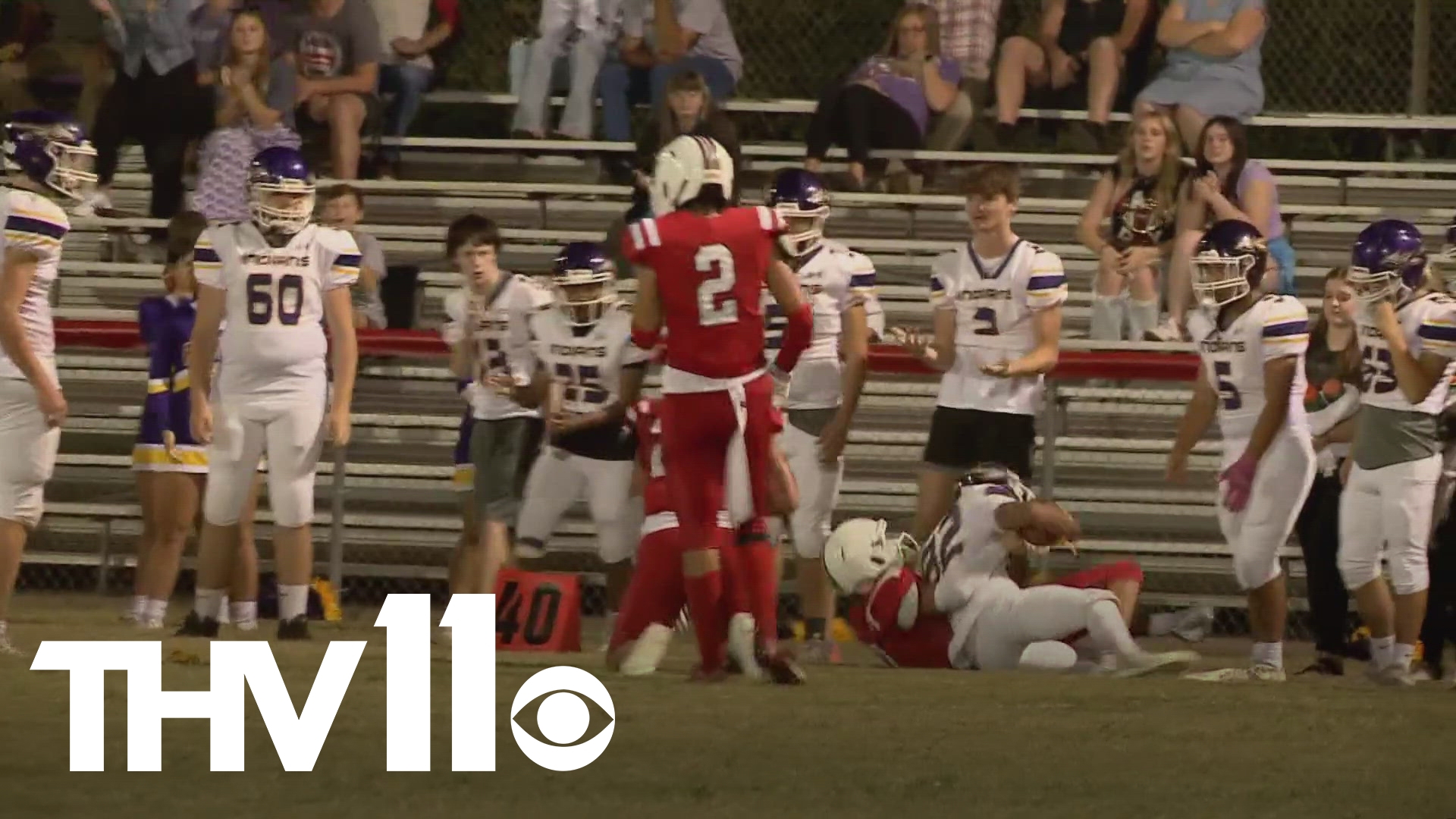LITTLE ROCK, Ark. — High school football is around the corner for many Arkansas programs, and school officials have been working to limit the amount of concussions that happen and ensure safety for every athlete.
According to officials with Arkansas Children's Hospital, a concussion is when the brain dysfunctions after a head injury but shows up on CTE scans as normal.
Any athlete can become susceptible to concussions while playing a sport— whether they collide with a teammate, run into a goal post, hit their head on the turf, or get hit with a fast pitch.
One athletic trainer at Episcopal Collegiate School explained how there are many signs that come about if a child has a concussion and added that symptoms can range between mild to very serious.
"A concussion is based off symptoms and basically just watching the athlete. You can tell if something's off, their balance is off, they're not telling stories the way that it happened or they're talking nonsense," said Alison Shaw.
To help students recover properly, school athletic officials have implemented protocols and precautionary steps that both students and coaches should follow to ensure safety.
The Arkansas Activities Association (AAA) lists a five to six-step protocol that most coaches follow within the state.
According to Arkansas law, every coach and registered volunteer must receive concussion training followed by an extensive analysis that student-athletes must follow.
"We go through five or six-day return to play, which is just working them basically from walking or jogging around the track for 15 minutes all the way up to sports-specific drills that they'll do back in practice and then we release them to full return to play," Shaw described.
Here are some concussion symptoms you should be aware of are listed below:
- Nausea
- Dizziness
- Balance problems
- Fuzzy vision
- Sensitivity to light or noise
- Headaches
- Confusion
Concussions can also look different for younger children than high schoolers and adults. For more information on the signs and symptoms of a concussion, please click here.

